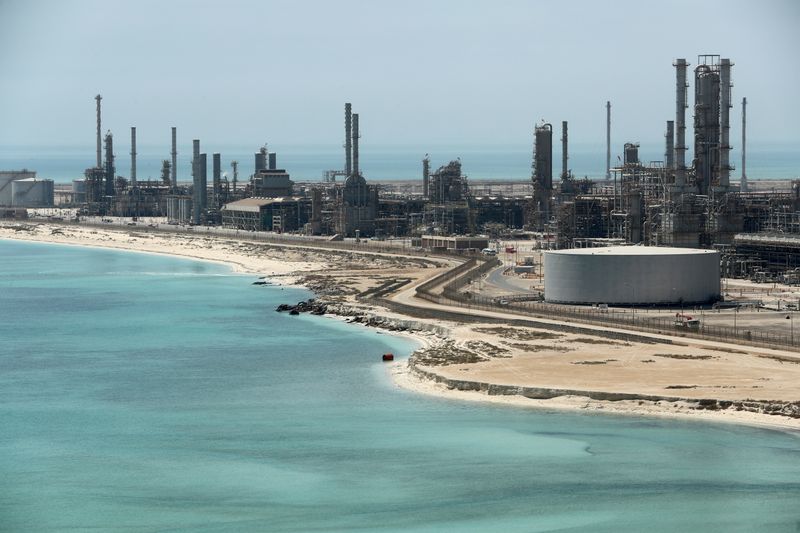By Timothy Gardner
WASHINGTON (Reuters) - Nearly 50 Republican U.S. Representatives told Saudi Crown Prince Mohammed bin Salman on Wednesday that economic and military cooperation between Washington and Riyadh is at risk unless the kingdom helps to stabilize oil prices by cutting crude output.
"If the Kingdom fails to act fairly to reverse this manufactured energy crisis, we would encourage any reciprocal responses that the U.S. government deems appropriate," said a letter to the crown prince signed by 48 lawmakers, or about a quarter of the Republicans in the U.S. House of Representatives, which is controlled by Democrats.
It was the latest pressure by Republican lawmakers on Saudi Arabia over its race for oil market share with Russia.
Crude oil prices have plummeted with slumping demand during the coronavirus outbreak and on excess supply. Crashing prices threaten highly leveraged U.S. oil companies with bankruptcies and layoffs. Many of the lawmakers were from oil-producing states, including Louisiana's Steve Scalise, the No. 2 House Republican, who spearheaded the letter.
On Thursday, Saudi Arabia and Russia will participate in an OPEC+ meeting. U.S. President Donald Trump has said he brokered an output cut of 10-15 million barrels per day but Moscow and Riyadh have yet to publicly indicate any agreement on the level or how to distribute reductions among OPEC+, which includes the Organization of the Petroleum Exporting Countries, Russia and other producers.
On Tuesday, the U.S. Energy Department said low oil prices will force companies to gradually cut output by nearly 2 million barrels per day.
The letter said thousands of American workers in oil and natural gas and related fields face increased financial and economic uncertainty.
"Failure to address this energy crisis will jeopardize the joint efforts between our nations to collaborate economically and militarily," the letter said. "The U.S. military presence in the Middle East region has maintained the stability that provides for the economic prosperity and ensures the security of
our two nations."
Senate Republicans introduced a bill in March to remove U.S. troops, missiles and defense systems from the kingdom if it does not cut output. The bill faces an uphill battle, but analysts said threats to Washington's defense relationship with Saudi Arabia have given the Trump administration another card in its talks with the kingdom.

Trump has also threatened tariffs on Saudi and Russian oil imports, but such measures are opposed by industry groups such as the American Petroleum Institute who say they would increase costs for U.S. refiners.